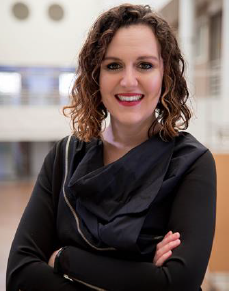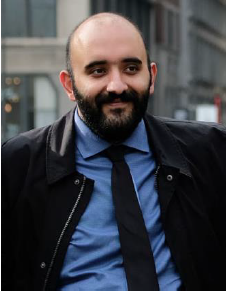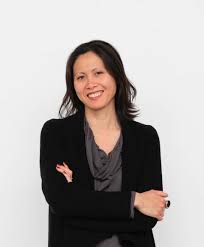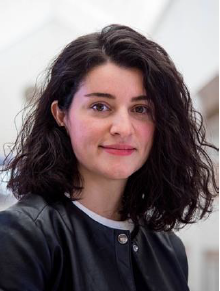FOR IMMEDIATE RELEASE
Awards that recognize and advance architectural research in the design of the built environment.
November 25, 2019 – The Board of Directors of The Architectural Research Centers Consortium (ARCC) announces three research awards in support of recognizing and advancing state-of-the-art research in architecture and related design fields.
2020 ARCC James Haecker Award for Distinguished Leadership in Architectural Research
The ARCC James Haecker Award for Distinguished Leadership in Architectural Research recognizes an individual who has made outstanding contributions to the growth of the research culture of architecture and related fields, including urban and regional planning, landscape architecture, and interior design. Named in honor of ARCC’s founding Executive Secretary, the recipient of the prestigious James Haecker Award has demonstrated a record of sustained and significant research leadership at the national and/or international level. Given the innovative, sustained and high impact of her work, the ARCC Board of Directors is pleased to announce the recipient of the 2020 ARCC James Haecker Award for Distinguished Leadership in Architectural Research is Dana Cuff.
Dana Cuff, Ph.D. is Professor of Architecture and Urban Design at UCLA where she is also Director of cityLAB, an award-winning think tank that advances experimental urbanism and architecture (www.cityLAB.aud.ucla.edu). Since receiving her Ph.D. in Architecture from UC Berkeley, Cuff has published and lectured widely about spatial justice, the architectural profession, and affordable housing. She is author of several books, including The Provisional City about postwar housing in Los Angeles, and a co-authored book (released early 2020) documenting her innovative cross-disciplinary project at UCLA called the Urban Humanities Initiative, funded by the Mellon Foundation. Based on cityLAB’s design research, she co-authored a landmark bill that permits “backyard homes” on virtually all 8 million single-family properties in California (AB 2299, Bloom-2016), doubling the density of suburbs across the state. She and her team are currently working on a wide range of new forms of affordable housing to be co-located with schools. cityLAB recently initiated a satellite center in one underserved neighborhood of Los Angeles, where a deep, multi-year exchange with community organizations will demonstrate ways that embedded research and humanistic design of the public realm can create more compassionate cities.
2020 ARCC New Researcher Award
The ARCC New Researcher Award celebrates the activities, accomplishments and promise of scholars in the early stages of their research career. The ARCC New Researcher Award is intended to acknowledge emerging figures in architectural and environmental design research that demonstrate innovation in thinking, dedication in scholarship, contributions to the academy, and leadership.
Based on the experimental and creative nature of her work, and promise in the field, the ARCC Board of Directors is pleased to announce the recipient of the 2020 ARCC New Researcher Award is Tsz Yan Ng.
Tsz Yan Ng, M.Arch. II is an Assistant Professor at the University of Michigan. She previously served as the Walter B. Sanders Fellow at the University of Michigan (2007-2008) and the Reyner Banham Fellow at the University of Buffalo (2001-2002). She holds an M.Arch. II from Cornell University, and an M.Arch. and Bachelor of Professional Studies from the State University of New York at Buffalo. Tsz Yan Ng’s material-based research and design primarily focus on experimental concrete forming (hard) and textile manipulation (soft). A common thread to her work investigates questions of labor in various facets and forms – underscoring broader issues of industrial manufacturing innovation, of human labor, crafting, and aesthetics. Principal of an independent architecture and art practice with built works in the US and China, her work ranges in scale from textile manufacturing facilities to commercial retail interiors and installations. She recently received an Architect Magazine R+D Award for Robotic Needle Felting and an AIA Upjohn Research Initiative Grant to explore concrete 3D printing. Her co-edited book Twisted was released in 2018 and was co-editor for the JAE theme issue Work (2019).
2020 ARCC Research Incentive Award
The ARCC Research Incentive Award aims to support and promote high‐quality architectural research and scholarship activities in ARCC member schools. The program provides faculty in with a one-year $5,000 grant to support and enhance their research and creative activities, and to develop their research agendas.
Following the high caliber of applications, the ARCC Board of Directors is pleased to announce the award of two proposals for the 2020 ARCC Research Incentive Award.
1) Reconfigurable Space: Kinematic Environments Controlled with Computer Vision
Principal Investigator: Rachel Dickey, M.Des.; Co-Investigators: Ali Karduni, M.Arch./M.S. in Information Technology and Noushin Radnia, M.Arch./M.S. in Information Technology (University of North Carolina at Charlotte)
The project will explore a robotic architecture produced from large-scale deployable surfaces which can change size in shape based on human activity. The research focuses on the first of the three related projects: 1) physical design and prototyping of kinematic architectural elements; 2) design and testing of computer vision sensing and control systems for actuated elements; 3) user testing studying the impact of reconfigurable environments on occupants. The outcome of this first phase of work includes a research exhibition demonstrating pneumatically actuated soft robotics.


Rachel Dickey, M.Des. is an Assistant Professor at the University of North Carolina at Charlotte and is founder of Studio Dickey, an experimental design practice based in Charlotte. She holds a Masters of Design Studies with a concentration in technology from the Graduate School of Design at Harvard University and a Bachelor of Science in Architecture and Master of Architecture from Georgia Tech. Dickey has held appointments as a visiting critic at Cornell University and Design Innovation Fellow at Ball State University. Her research and work has been published in Architectural Review, Arteca, Robotic Fabrication in Architecture, Art, and Design, and in Paradigms in Computing. Additionally, she has exhibited at the Office for the Arts at Harvard, Des Cours in New Orleans, and the Museum of Design in Atlanta. Dickey’s particular area of interest examines ways of engaging the body and technology to uncover design approaches which demonstrate the influential capacity of architecture to impact and enhance the lives of those who encounter it.
Ali Karduni, M.Arch./M.S. is a Ph.D. Candidate in Computing and Information Systems at the University of North Carolina at Charlotte. A computer scientist and designer, Karduni works as a researcher at the Charlotte Visualization Center and instructor in the School of Architecture. His research involves understanding how information technologies affect spatial and social processes, and developing new interactive technologies to alter and impact these processes. His interdisciplinary work has been published in academic journals, book
chapters, and conference proceedings spanning the disciplines of Computer Science, Urbanism, and Architecture. He holds a Master of Architecture and Master of Science in Information Technology from UNCC and a Master of Urban Planning and Policy from the University of Illinois at Chicago.
Noushin Radnia, M.Arch./M.S. is a Post-Graduate Teaching Fellow in the School of Architecture at the University of North Carolina at Charlotte. She has worked as a designer, researcher, and educator in Iran and the United States. She holds a Master of Architecture and Master of Science in Information Technology from UNCC and a Bachelor of Architecture from Azad University of Tabriz, Iran. Radnia has pursued her research in the Digital Arts Lab at UNCC at the intersection of architecture and technology, centered around the dialogue between physical and digital space and how they impact human experience.
2) Flexi-Form: Design and Fabrication of Additive Flexible Formwork for the Design of Concrete Interlocking Modules
Principal Investigator: Niloufar Emami, Ph.D. (Louisiana State University)
The project will study 3D printed concrete fabrication methods that can accommodate the creation of complex and cost effective formwork geometries at scale. The proposed research involves optimization of a wide range of process parameters, including temperature, extrusion speed (flow rate), printing speed (feed rate), extruder nozzle diameter, and effects
of mixes with different densities. The outcomes of the study will produce sufficient data to better understand the influence of these aspects, narrowing the gap between design and fabrication.
Niloufar Emami, Ph.D. is an Assistant Professor of Architecture and holds the A. Hays Town Professorship at Louisiana State University. She is a researcher, educator, and designer looking for gaps, intersections, and overlaps between architecture and multiple other disciplines, using computational tools and fabrication techniques to provide creative yet performing solutions. Niloufar holds a Ph.D. in Architecture with a major in building technology from the University of Michigan, Ann Arbor, a post-professional Master of Science in Architecture from the University of Michigan, a Master of Architecture from Iran University of Science and Technology, and a Bachelor of Architecture. Niloufar is the recipient of numerous awards, including first runner-up award in DIVA Day competition, Barbour Scholarship and the Helen Wu Award, among other honors.
Award recipients were selected by ARCC’s eight-member Board of Directors. Review process and deliberations were consistent with rigorous peer-review where nominees and proposals were debated on their own merits. Past recipients of ARCC Awards can be reviewed on ARCC’s website (arcc-arch.org).
About The Architectural Research Centers Consortium (ARCC)
Founded in 1976, the ARCC is an international association of architectural research centers, academies and organizations committed to the research culture and supporting infrastructure of architecture and related design disciplines. Through conference programming, grant and award programs, workshops and research journal Enquiry, ARCC represents a concerted commitment to improve the quality of life in the built environment.
Communications Contact: Chris Jarrett (chjarrett@uncc.edu)

 Study Architecture
Study Architecture  ProPEL
ProPEL 



